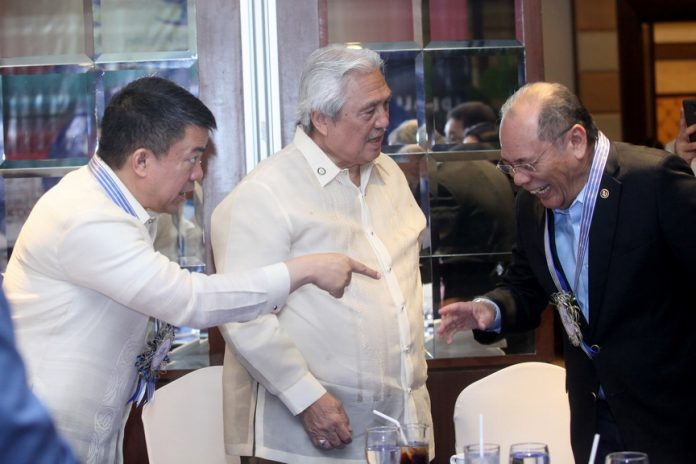
The Centrist Democratic Party of the Philippines adopted the CDP Federalism Parliamentary Roadmap 2016-2028 during their Eighth National Congress held yesterday (Saturday) at Marco Polo Hotel, Davao City.
The CDP Federalism Roadmap is a plan indicating the timeline of activities, the critical processes of transition and preconditions needed to be put in place in order to achieve a Federal republic by the year 2028.
The CDP Roadmap to Federalism has the following steps:
1) Put in place four preconditions and while revising the 1987 Constitution,
2) Immediate transition into a parliamentary government; and
3) Creation of Autonomous Territories leading towards a Federal Republic.
“The CDP Roadmap to Federalism is thus designed to mitigate the shock to the body politic arising from the purging of traditional political practices through the immediate passage of reform laws, now pending in Congress,” said Lito Monico G. Lorenzana, founder and current president of the Centrist Democracy Political Institute.
Lorenzana said that the four preconditions that should be put in place are political party reforms, banning of political dynasties, passage of a universal Freedom of Information Law; and electoral reforms.
“These preconditions have a high probability of passage while we have a President endowed with tremendous political capital and have the political will to act decisively.”
In step 2, Lorenzana’s proposal states that the legislative and the executive powers are fused in a unicameral parliament; and the “Head of the Government” is the Prime Minister with his cabinet recruited from among the members of the parliament; while the President is the “Head of State” with mostly ceremonial powers; elected from among the members of the Parliament.
In step 3, provinces and highly urbanized component cities are allowed to evolve first to an autonomous territory. “If a referendum is passed, within a year, Parliament must enact an organic law defining the autonomous territory’s land area, powers, obligations and sources of revenues. If 3/5 (60%) of the provinces and component cities of the Philippines become autonomous territories, then the Federal Republic of the Philippines is created.”
Furthermore, Lorenzana said that only an alert and knowledgeable citizenry can compel the achievement of this goal. The people still need massive political education over the Philippines and this can only be achieved “when all like-minded political parties and individuals will turn their backs on differences and march forward in a single rhythm.”
Lorenzana hopes that President Duterte will consider the roadmap since pushing through a federal government is part of the president’s plan during his governance.






